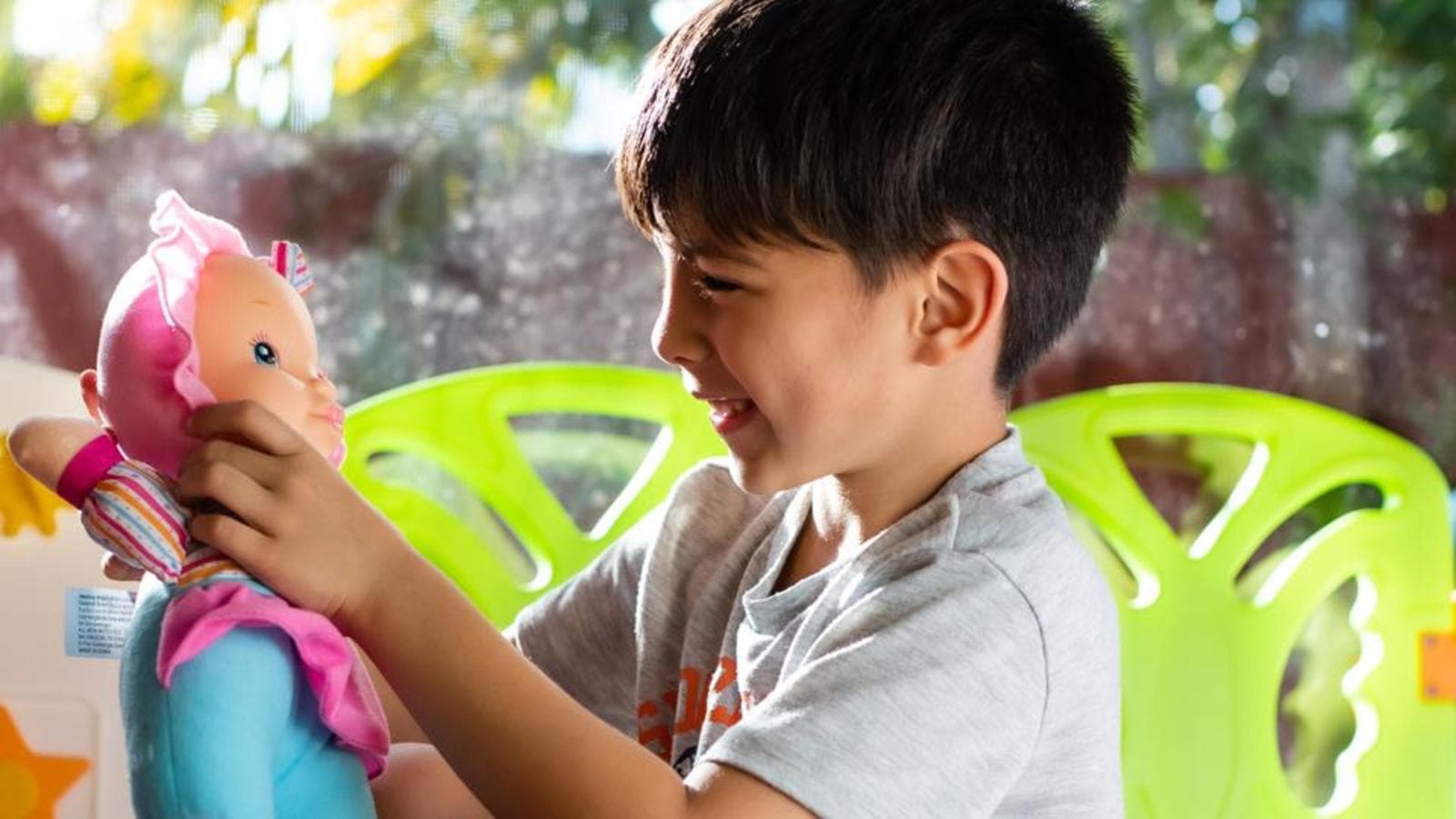Understanding the Psychology of Gender-Neutral Parenting
Explore the intricate psychology behind gender-neutral parenting. Discover how societal norms shape identities and the importance of nurturing individuality in children. By challenging stereotypes, parents foster inclusivity and empathy, shaping a more accepting society. Learn about the impact on child development, promoting autonomy, creativity, and confidence. Uncover the parental role in shaping identity and breaking away from rigid gender norms. Embrace diverse family structures and open-minded conversations to cultivate acceptance. Despite challenges, understanding the psychology behind gender-neutral parenting offers insights into future parenting practices for a more inclusive world.
Key Takeaways
- Gender-neutral parenting challenges traditional gender norms and stereotypes.
- Focuses on fostering individuality and self-expression in children.
- Promotes inclusivity by creating a supportive and accepting environment.
- Shapes children’s identities by encouraging exploration beyond societal expectations.
- Psychological research on gender-neutral parenting informs future practices and societal constructs.
Origins of Gender-Neutral Parenting

Gender-Neutral Parenting emerged in response to societal norms and expectations regarding gender roles and stereotypes. In the historical context, traditional gender roles have long dictated how individuals should behave based on their biological sex. Societal influences have perpetuated these norms, leading to the reinforcement of gender stereotypes from a young age.
Parents have historically been guided by these societal expectations when raising their children, often unknowingly perpetuating gender biases through their parenting practices.
The origins of Gender-Neutral Parenting can be traced back to a growing awareness of the limitations and harmful effects of rigid gender norms. By challenging these traditional beliefs, Gender-Neutral Parenting aims to provide children with the freedom to explore their identities without being confined by societal expectations.
This parenting approach encourages a more inclusive and open-minded environment, where children are free to express themselves authentically, regardless of gender. Through rejecting the constraints of traditional gender roles, Gender-Neutral Parenting fosters a more equitable and empowering upbringing for children.
Impact on Child Development

As you think about the impact of gender-neutral parenting on child development, it’s important to examine the potential outcomes that may arise.
How a child’s gender identity forms within a gender-neutral environment can greatly influence their sense of self.
Additionally, the effects on parent-child bonding from implementing a gender-neutral approach can shape the overall parent-child relationship dynamic.
Child Development Outcomes
The way parents approach raising their children can greatly impact various aspects of their development. Gender-neutral parenting, focusing on individuality rather than stereotypes, can have positive effects on child development outcomes.
In this approach, cognitive development is often enhanced as children are encouraged to explore a wide range of interests without being restricted by traditional gender norms. By allowing self-expression without gender-specific limitations, children can develop a strong sense of identity and emotional well-being.
Moreover, social skills flourish in gender-neutral environments as children learn to interact based on personalities rather than gender expectations. This can lead to more inclusive and empathetic individuals who appreciate diversity.
Self-expression is also fostered, promoting creativity and confidence in children. By avoiding rigid gender roles, children can freely explore different activities and emotions, leading to a more well-rounded development.
Gender Identity Formation
Encouraging children to explore and understand their own unique sense of identity plays an essential role in shaping their gender identity formation and overall development. Gender identity formation involves a complex interplay of factors, including gender expression, self-discovery, identity exploration, and social influences.
During childhood, children start to develop a sense of their own gender identity through observing and interacting with the world around them. They engage in activities, play with toys, and express themselves in ways that feel authentic to them. This self-discovery and exploration are vital for building a solid foundation for their gender identity.
Social influences also play a significant role in shaping how children perceive gender roles and expectations. Family, peers, media, and society at large can all impact a child’s understanding of gender.
Parent-Child Bonding Effects
Through fostering a strong bond with your child, you can positively influence their emotional development and overall well-being. Attachment theory suggests that forming a secure attachment with your child in their early years is essential for their emotional regulation and social skills. When children feel securely attached to their caregivers, they develop a sense of trust, which lays the foundation for healthy emotional development. This secure attachment provides them with a safe base from which to explore the world, enhancing their confidence in trying new things and forming relationships.
Moreover, a strong parent-child bond helps children learn how to regulate their emotions effectively. By providing a supportive and nurturing environment, you can teach your child how to manage their feelings in a healthy way. This emotional regulation skill is vital for their mental well-being and their ability to navigate social interactions successfully.
Nurturing Gender Fluidity

Consider embracing a fluid approach to gender roles within your parenting style, fostering an environment where your child feels free to explore and express their identity without constraints.
Gender expression, which encompasses how one presents themselves to the world regarding masculinity, femininity, or androgyny, is heavily influenced by social norms. By nurturing gender fluidity in your child, you can help them develop a strong sense of self that isn’t limited by traditional gender expectations.
Encourage your child to explore activities, interests, and clothing choices that may not align with societal expectations based on their gender. By allowing them the freedom to express themselves authentically, you’re promoting self-confidence and self-awareness.
Remember that breaking away from rigid gender roles can lead to a more inclusive and accepting society where individuals are valued for who they’re rather than conforming to stereotypes.
Embracing gender fluidity in parenting is about creating a safe space for your child to grow into their true self, free from the constraints of outdated norms. By supporting their journey of self-discovery, you’re empowering them to embrace their uniqueness and live authentically.
Breaking Stereotypes
To challenge societal norms and promote a more inclusive environment, it’s important to address and dismantle stereotypes that limit individuals based on gender. Stereotype debunking plays a vital role in creating a society where individuals are free to express themselves authentically without fear of judgment or discrimination.
By breaking stereotypes, we open up a world of possibilities for everyone, regardless of their gender identity.
Societal norms often dictate how individuals should behave based on their gender, reinforcing harmful stereotypes that can restrict personal growth and self-expression. By actively engaging in stereotype debunking, you contribute to a more understanding and accepting community.
Parental Role in Shaping Identity

Parents play a crucial role in shaping their children’s identities through their actions, words, and attitudes towards gender. When parents encourage identity exploration, they create a supportive environment for their children to discover who they are beyond traditional gender norms.
By acknowledging and respecting their child’s self-expression, parents foster a sense of autonomy and self-confidence. Cultural influences also play a significant role in shaping identity, as children absorb societal norms and expectations from a young age.
The socialization process within the family unit is where children first learn about gender roles and behaviors. Parents who challenge these norms and provide a diverse range of experiences help their children develop a more inclusive and open-minded perspective.
Encouraging self-expression allows children to authentically express themselves without the constraints of rigid gender stereotypes.
Fostering Inclusivity and Acceptance
To cultivate inclusivity and acceptance in your parenting approach, start by promoting diverse family structures within your social circle and media consumption.
Encourage open-minded conversations with your children about different identities and perspectives, creating a safe space for questions and exploration.
Embrace and celebrate individuality and uniqueness in your child, fostering a sense of self-acceptance and respect for others.
Promoting Diverse Family Structures
Fostering inclusivity and acceptance within diverse family structures is essential for promoting a supportive environment for children to thrive in their gender-neutral upbringing. Providing diverse representation within family units helps children understand that there’s no one-size-fits-all model for families, encouraging acceptance of different family dynamics.
By exposing children to various family structures, such as single-parent households, same-sex parents, or multi-generational families, parents can instill values of empathy and respect for different ways of life. This exposure not only normalizes diverse family setups but also teaches children the importance of inclusivity and acceptance.
When children grow up in an environment where diverse family structures are celebrated and accepted, they learn to appreciate the uniqueness of each family unit without judgment. This understanding fosters a sense of belonging and respect for all individuals, regardless of their family composition.
Ultimately, promoting diverse family structures within gender-neutral parenting cultivates a more inclusive and open-minded society for future generations.
Encouraging Open-Minded Conversations
Encouraging open-minded conversations among children about diverse family structures is essential for fostering inclusivity and acceptance in gender-neutral parenting. By promoting open-minded dialogues, parents can help children understand and appreciate different family dynamics beyond traditional norms. Through these conversations, children can learn about the diverse cultural norms that exist and how families can come in all shapes and forms.
Moreover, engaging in discussions that focus on stereotype dismantling is vital in challenging societal expectations. Children need to be encouraged to question and critically analyze stereotypes that may perpetuate harmful biases. By fostering a safe space for open conversations, parents can empower their children to embrace diversity and individuality without judgment.
Incorporating these discussions into daily interactions can create a more inclusive environment where children feel accepted regardless of their family structure. Encouraging open-minded conversations is a powerful tool in shaping children’s perceptions and attitudes towards diversity and acceptance in gender-neutral parenting.
Embracing Individuality and Uniqueness
By embracing individuality and uniqueness, you can create a supportive environment that fosters inclusivity and acceptance in gender-neutral parenting. Celebrating uniqueness and embracing differences within your family dynamic allows each child to feel valued for who they’re as individuals. Encouraging individuality over conformity promotes a sense of self-worth and confidence in your children. When self-expression is encouraged without gender stereotypes, children can explore their interests and passions freely.
In a gender-neutral parenting approach, it’s crucial to create a space where children feel accepted regardless of societal norms. By embracing each child’s uniqueness, you communicate that their individuality isn’t only accepted but celebrated. This fosters a sense of inclusivity within the family unit and teaches children to appreciate and respect differences in others.
Embracing individuality and uniqueness in gender-neutral parenting encourages children to be true to themselves, fostering a supportive environment where they can thrive and grow into confident, self-assured individuals.
Challenges and Criticisms

Exploring the world of gender-neutral parenting can be difficult, as it often faces scrutiny and criticism from various sources. Societal pushback against deviating from traditional gender norms can create a barrier for parents seeking to raise their children in a gender-neutral environment.
The pressure to conform to cultural influences that dictate strict gender roles can amplify these challenges, leading to doubts and hesitations among parents.
Moreover, gender-neutral parenting can raise concerns among parents about the potential psychological implications on their children. Some worry that not adhering to typical gender expectations could lead to confusion or difficulties in social interactions. These parental concerns stem from a desire to provide the best upbringing for their children while also navigating the complexities of challenging societal norms.
Despite these challenges and criticisms, understanding the psychology behind gender-neutral parenting can help parents make informed decisions that prioritize their children’s individuality and well-being.
Future Trends and Research Opportunities
Considering the evolving landscape of parenting practices, future trends and research opportunities in gender-neutral parenting are gaining significance in the field of psychology.
As cultural shifts continue to shape societal norms, emerging trends in gender-neutral parenting are being closely examined for their societal impact. Research opportunities in this area offer a promising avenue for psychologists to explore further into understanding the effects of gender-neutral parenting on children’s development and well-being.
Exploring emerging trends in gender-neutral parenting can provide valuable insights into how these practices influence children’s cognitive and socioemotional development. By investigating the long-term effects of gender-neutral parenting, psychologists can contribute to our understanding of how these approaches may shape children’s identities and relationships in the future.
Furthermore, examining the societal impact of gender-neutral parenting can shed light on how these practices influence broader social constructs related to gender roles and stereotypes. By exploring research opportunities in this field, psychologists can help inform future parenting practices and promote a more inclusive and equitable society.
Frequently Asked Questions
How Does Gender-Neutral Parenting Impact a Child’s Relationships With Peers?
When you practice gender-neutral parenting, your child’s relationships with peers may be influenced positively. Peer acceptance can improve as your child navigates social interactions without being confined by traditional gender stereotypes, promoting healthier peer dynamics.
Can Gender-Neutral Parenting Eliminate Societal Gender Norms Entirely?
You can reduce the influence of gender stereotypes and societal norms through gender-neutral parenting. By fostering a supportive environment, you help shape a child’s psychological development and allow them to explore and define their gender identity freely.
Is There a Specific Age to Start Implementing Gender-Neutral Parenting?
When considering parental readiness for gender-neutral parenting, it’s important to prioritize your child’s autonomy and self-expression over societal pressures. Start implementing these values as early as possible to foster a supportive environment.
Do Gender-Neutral Parents Face Discrimination in Conservative Societies?
In conservative societies, gender-neutral parents may encounter societal challenges due to cultural barriers. However, with parental resilience and a focus on progressive change, they can navigate discrimination and pave the way for a more inclusive future.
How Can Extended Family Members Support Gender-Neutral Parenting Practices?
To support gender-neutral parenting, extended family members can foster open communication and educate themselves on family dynamics. Acceptance of diverse perspectives and active participation in the child’s upbringing can create a supportive environment for all.
Conclusion
As you navigate the world of gender-neutral parenting, remember that the journey is about fostering inclusivity, acceptance, and breaking stereotypes.
By understanding the psychology behind this approach, you can better support your child’s development and shape a more open-minded society.
Embrace the challenges and criticisms, as they offer opportunities for growth and learning.
Keep an open mind, stay informed, and continue to advocate for a more inclusive future for all children.

Chad Adan Kace, a young dad from Vermont, shares his parenting journey with a touch of humor and lots of love. Father to a lively baby, he explores the joys and challenges of fatherhood through his stories.







